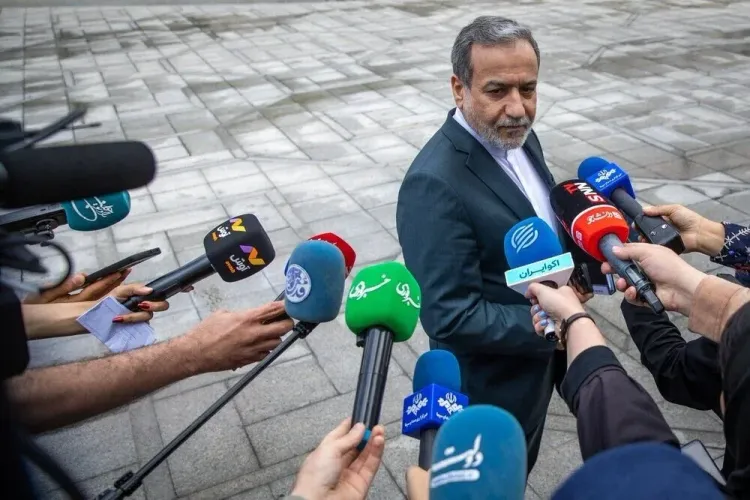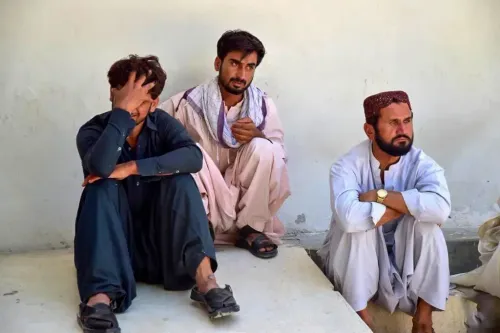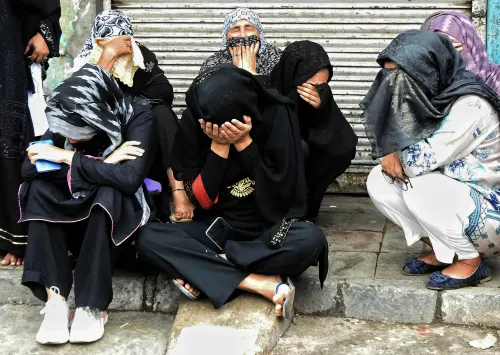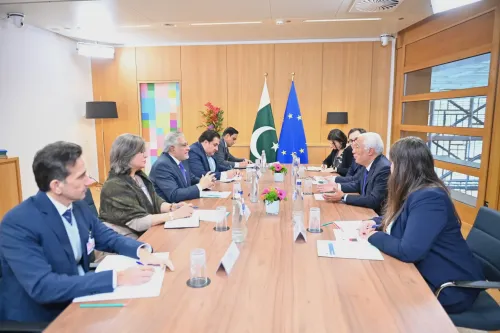What Did Iranian and Armenian FMs Discuss Regarding the Armenia-Azerbaijan Peace Deal?

Synopsis
Key Takeaways
- Iran and Armenia are maintaining strong diplomatic relations.
- The peace agreement aims to stabilize the South Caucasus region.
- Transport routes are a critical point of discussion.
- National sovereignty must be respected in any agreements.
- The role of the United States in the peace deal is significant.
Tehran, Aug 12 (NationPress) The Foreign Minister of Iran, Seyed Abbas Araghchi, along with Armenia's Foreign Minister, Ararat Mirzoyan, engaged in a discussion regarding a recent peace agreement between Armenia and Azerbaijan, as per a statement from the Iranian Foreign Ministry released on Tuesday.
During a phone conversation on Monday, both ministers reviewed bilateral relations and the latest occurrences in the South Caucasus area, according to the statement.
Araghchi expressed his support for the peace deal that was signed between Iran's northern neighbors, Azerbaijan and Armenia, in Washington last Friday. He highlighted some of Iran's concerns regarding transport routes and the unblocking of transit networks in the region, as reported by Xinhua News Agency.
He pointed out a specific clause in the peace agreement that permits the United States to establish a significant transit corridor through southern Armenia, linking Azerbaijan to its exclave of Nakhchivan and subsequently to Turkey. He asserted that this corridor must not result in any geopolitical transformations in the area or interfere with Iran's access to other transit routes.
Araghchi stressed that national sovereignty and territorial integrity must be honored in any decision-making, mentioning that it is crucial to take into account the stability and security of both the region and its neighboring countries.
On the Armenian side, Mirzoyan conveyed that his nation regards Iran as a friend and neighbor. He emphasized that Yerevan is focused on sustaining amicable relations with Tehran, which are grounded in mutual interests and the principle of good neighborliness.
Mirzoyan also informed the Iranian minister about the peace agreement, the arrangements for unblocking regional transport routes, and the upcoming steps necessary for implementing these agreements. He reassured that Armenia will remain committed to regional peace and stability while considering common interests when making decisions regarding transit routes.
For decades, Armenia and Azerbaijan have been in conflict over the mountainous Nagorno-Karabakh region, with peace discussions ongoing since 1994, following a ceasefire, despite intermittent clashes.
On Friday, leaders from both nations witnessed the initialing of a peace treaty at the White House, marking an end to their long-standing border disputes, with additional measures to be undertaken to finalize and endorse the agreement.









